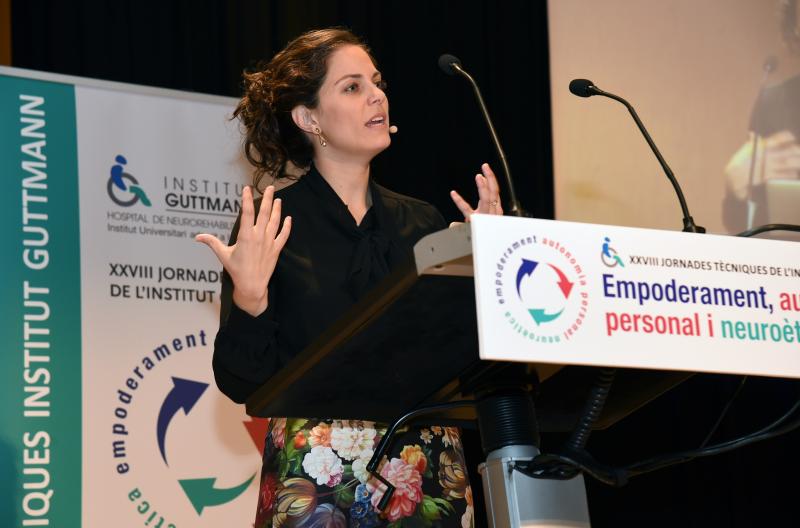XXVIII Institut Guttmann Technical Symposia
XXVIII Institut Guttmann Technical Symposia

Mrs. Dolors Bassa, Minister of Employment, Social Affairs and Family, and Mr. Rafael Ribó, Ombudsman of the Generalitat de Catalunya, both accompanied by Dr. Josep M Ramirez, Director of the Institut Guttmann, closed the 28th Institut Guttmann Technical Symposia; a scientific event, this year entitled "Empowerment, personal autonomy and neuroethics”. It brought together nearly 300 professionals and managers of public and private people care services, especially of groups with cognitive and/or behavioural disorders due to neurological injuries or diseases, mental health, dementia or dependents, as well as institutions, associations and other interested people.
The talk of Kathinka Evers, researcher at the Centre for Ethics and Bioethics at Uppsala University, showed attendees several projects about integrative research on human brain operation and, also, explained the study in which they are working to demonstrate and develop criteria for diagnosis and interpretation of cognitive responses of people affected by disorders of consciousness. Meanwhile, Molly Crockett, researcher in neuroethics at Oxford University, gave a presentation that raised the difficult question of "What makes you to be you?", analysing what is morality, the way it is established and how it can be altered by certain medications such as antidepressants (dopamine, serotonin), which can change human behaviour.
The first panel discussion on “Empowerment and personal autonomy in individuals with cognitive and/or behavioural disorders” dealt with necessity to review paternalism and protective look in order to achieve global challenges, which avoid restricting rights that prevent people from risks. Medicine and care addressed to patient is the key to achieving this empowerment, in which individual must be knowledgeable and competencies of patients must be carefully analysed together with professional vocation, creating a context in which maybe we can even reach to give them the competence on themselves.
The panel discussion in the afternoon, "Person centred care, challenge of preserving personal autonomy" made an approach from the point of view of the organizations providing services in different areas (elderly, field home care, mental health, intellectual and physical disabilities). Recognized rights are often affected due to reasons of territorial inequality, lack of resources and social policies, especially for stigmas and fears of society, which is still beyond to be an inclusive one. Although social commitment of everybody, professional vocation and increase of responsibility together with participation of the person are just some of the things to promote, they are going to require a major investment, programs of proximity, plans of health care and the paradigm shift towards this biopsychosocial model that focuses on the person, their functionalities and competences.







